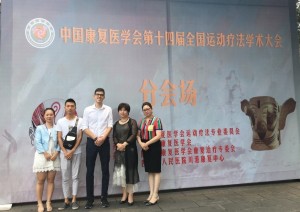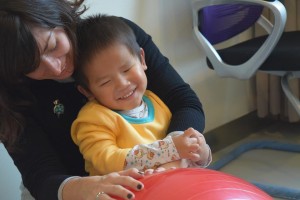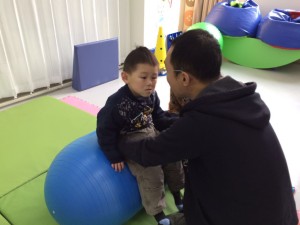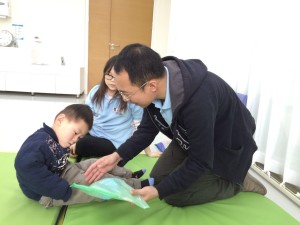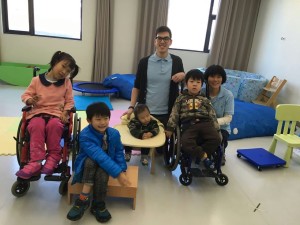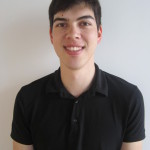
Marc Innerhofer, Physiotherapist & Physical Therapy Lead (Beijing)
Marc Innerhofer is a physiotherapist from Austria. He received his degree at the University of Queensland in Brisbane, Australia. Marc previously worked in a public hospital predominantly treating adults, but has since spent the last 3 years specializing in the field of pediatrics at LIH Oliva’s Place in Beijing. He has experience working with children with a variety of diagnoses including developmental delay, ADHD, developmental coordination disorder (DCD), autism, cerebral palsy, spina bifida, Erb’s Palsy, and Down Syndrome. Marc regularly volunteers his time to various welfare centers and non-profit organizations, providing expertise and treating children with a wide arrange of disabilities. Marc works with children and families in English, Chinese, and German.
How long have you been in China?
I moved to China in February 2012. My original plan to study Chinese for a few months has turned into almost 4 years that I’ve now been living in Beijing.
Why did you choose to work at LIH Olivia’s Place?
I chose to work for LIH Olivia’s Place to pursue my goal of specializing in the field of pediatric physical therapy. Despite the somewhat precarious health standards in China, LIH Olivia’s Place offered a professional setting and framework, ensuring international recognition for the work experience and clinical skills I have developed while working here. At the same time I have been able to contribute to the company’s ongoing mission to improve the standard of rehabilitation and therapy in China.
Why did you choose your field?
I chose to study physical therapy after completing my mandatory social service in a center for children with cerebral palsy back in Austria, my home country. Being introduced to the field of disability and learning about the impact therapy can have on the quality of life of people with physical impairments was an eye-opening experience.
What are some of the most rewarding experiences you have had in your chose profession?
I’ve had a lot of opportunity to make meaningful changes by volunteering at local welfare centers, where large numbers of children with disabilities can be found. Improving the quality of life of the most disadvantaged part of the population has been one of the most rewarding experiences. LIH Olivia’s Place has continuously supported me with his endeavor.
What’s your favorite thing about living in China and working at LIH Olivia’s Place?
The fast pace and ever-changing social and physical landscape in China makes living here a daily adventure. The therapists at LIH Olivia’s Place embrace this attitude and it’s great to be part of a growing and dynamic team. No matter how complex the needs of a child might be, the close-knit team at LIH Olivia’s Place is always able to provide support and share their experience and expertise from different corners of the world.
What would you like to be doing in 5 years’ time?
I still see myself broadening my experience and honing my clinical skills. A very broad range of patient presentations has given me a strong foundation in the field of pediatric physical therapy. I hope to take my skills to the next level to keep up with current research and continuously improving treatment approaches that are emerging.
 The 14th annual Exercise Therapy Congress organized by the Chinese Association of Rehabilitation Medicine (CARM) was held in Chengdu this year from July 16th – 17th. The 2-day conference saw speakers from all over China, the CARM leadership, as well as guest speakers from Canada and Germany present on the latest developments in the field of exercise therapy.
The 14th annual Exercise Therapy Congress organized by the Chinese Association of Rehabilitation Medicine (CARM) was held in Chengdu this year from July 16th – 17th. The 2-day conference saw speakers from all over China, the CARM leadership, as well as guest speakers from Canada and Germany present on the latest developments in the field of exercise therapy. Marc Innerhofer, LIH Olivia’s Place Physical Therapist (Beijing clinic) was invited by Du Qing (杜青), Director of the Rehabilitation Department at Shanghai Xin Hua hospital (上海新华医院), to deliver a talk on “Physical Therapy Intervention for Children with Autism Spectrum Disorder” as part of a sub-series of talks relating to the field of pediatric rehabilitation.
Marc Innerhofer, LIH Olivia’s Place Physical Therapist (Beijing clinic) was invited by Du Qing (杜青), Director of the Rehabilitation Department at Shanghai Xin Hua hospital (上海新华医院), to deliver a talk on “Physical Therapy Intervention for Children with Autism Spectrum Disorder” as part of a sub-series of talks relating to the field of pediatric rehabilitation.




